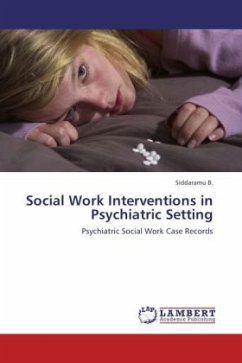
Psychiatric Genetics
From Hereditary Madness to Big Biology
Versandkostenfrei!
Versandfertig in 1-2 Wochen

PAYBACK Punkte
84 °P sammeln!




Psychiatric Genetics: From Hereditary Madness to Big Biology develops a sociological approach of exploring the origins of psychiatric genetics by tracing several distinct styles of scientific reasoning that coalesced at the beginning of the 20th century.
Michael Arribas-Ayllon is a senior lecturer in the School of Social Sciences at Cardiff University. His research interests are in the sociology of genetic knowledge, histories of biomedicine, applications of genetic testing, medical communication and professional decision-making. Andrew Bartlett is a sociologist working at the University of York and the University of Sheffield. He has a long-standing interest in the sociology of 'Big Biology' and has written papers on a range of topics in the sociology of science, including the interdisciplinarity of bioinformatics, the organization and publics of psychiatric genetics, and social issues with regard to genome editing. Jamie Lewis is a lecturer in Sociology in the School of Social Sciences at Cardiff University. His research interests coalesce around the sociology of science and technology studies (STS), public understanding of science (PUS) and medical sociology. He has published papers on bioinformatics, psychiatric genetics, stem cell research and public engagement.
Produktdetails
- Verlag: Routledge
- Seitenzahl: 246
- Erscheinungstermin: 21. Februar 2019
- Englisch
- Abmessung: 240mm x 161mm x 18mm
- Gewicht: 537g
- ISBN-13: 9781138999985
- ISBN-10: 1138999989
- Artikelnr.: 43153138
Herstellerkennzeichnung
Libri GmbH
Europaallee 1
36244 Bad Hersfeld
gpsr@libri.de
Für dieses Produkt wurde noch keine Bewertung abgegeben. Wir würden uns sehr freuen, wenn du die erste Bewertung schreibst!
Eine Bewertung schreiben
Eine Bewertung schreiben
Andere Kunden interessierten sich für











